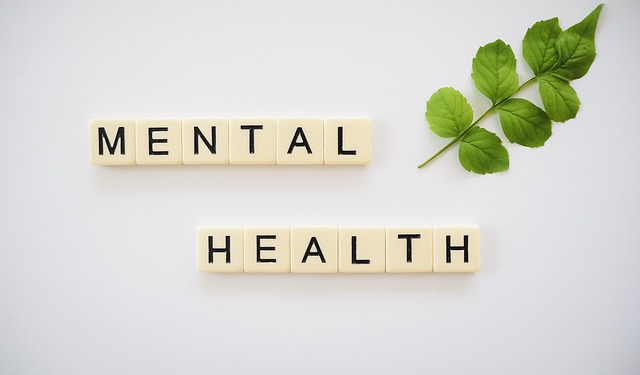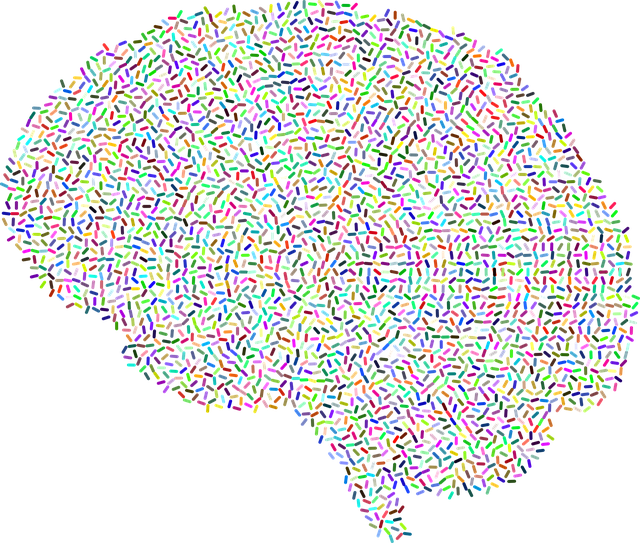Emotional intelligence (EI) is crucial for adolescents facing complex challenges like peer pressure, academic demands, and identity formation. High EI levels protect against mental health issues, including sexual dysfunction, a growing concern among teens. Tailored therapy for sexual dysfunction in adolescents focuses on developing EI through practices like mindfulness, journaling, and specialized counseling sessions. These techniques empower teens to manage emotions, improve communication, and reduce risks, ultimately enhancing their well-being and relationships.
Emotional intelligence (EI) is a powerful tool for adolescent development, impacting various aspects of their lives, including sexual health. This article delves into the significance of EI, exploring its effects on teenagers and offering practical strategies for enhancement. We discuss the unique link between EI and sexual well-being, highlighting the importance of addressing emotional barriers, especially in teens struggling with sexual dysfunction. By understanding these connections, we can guide therapists in providing effective treatment, such as therapy tailored for adolescent teens with sexual dysfunction, fostering healthier, more emotionally intelligent young adults.
- Understanding Emotional Intelligence and its Impact on Adolescents
- The Link Between Emotional Intelligence and Sexual Health
- Identifying and Addressing Emotional Barriers in Teenagers
- Strategies for Enhancing Emotional Intelligence in a Teenage Population
- The Role of Therapy in Building Emotional Intelligence for Teens with Sexual Dysfunction
Understanding Emotional Intelligence and its Impact on Adolescents

Emotional intelligence (EI) refers to an individual’s ability to recognize, understand, and manage their own emotions, as well as recognize, interpret, and respond appropriately to the emotions of others. For adolescents, developing EI is crucial for navigating the complexities of teenage years. This period is often marked by intense emotional shifts, peer pressure, academic demands, and forming their sense of identity, making it a pivotal time to foster emotional intelligence.
Research highlights that high levels of EI in teens can significantly impact their overall well-being. It acts as a buffer against various mental health challenges, including sexual dysfunction, which is a growing concern among adolescent teens. Effective therapy for these issues often involves not just treating symptoms but also enhancing emotional intelligence to enable better coping mechanisms and improve relationships. Moreover, understanding EI can aid in risk assessment for mental health professionals, helping them tailor interventions to prevent or mitigate burnout, especially when dealing with challenging cases like sexual dysfunction in adolescents.
The Link Between Emotional Intelligence and Sexual Health

Emotional intelligence plays a significant role in an individual’s overall well-being, including their sexual health and relationships. For adolescent teens, developing emotional regulation skills can be transformative. By understanding and managing their emotions effectively, teens can improve communication, assertiveness, and consent in intimate settings, potentially reducing the risk of sexual dysfunction later in life.
The link between emotional intelligence and mental wellness is well-documented. Incorporating self-care practices such as mindfulness, journaling, and therapy can enhance emotional regulation, which is essential for maintaining healthy boundaries and making informed decisions regarding sexual health. This proactive approach to emotional intelligence can empower teens with the tools needed to navigate their relationships and sexuality, fostering a positive sense of self and improved mental wellness.
Identifying and Addressing Emotional Barriers in Teenagers

Many teenagers struggle with emotional barriers that can significantly impact their mental wellness and overall well-being. These barriers often manifest as undiagnosed sexual dysfunction, stemming from a range of issues like trauma, peer pressure, or unclear boundaries. Therapy for adolescent teens plays a pivotal role in identifying these obstacles and providing much-needed guidance. Through specialized counseling sessions, therapists help teens explore and understand their emotions, offering them the tools to navigate complex situations.
Journaling exercises, as a part of mental wellness practices, can be immensely beneficial. Encouraging teenagers to document their thoughts and feelings allows them to process emotional challenges in a safe space. Additionally, stress reduction methods and self-care practices taught during therapy sessions empower teens to manage their sexual dysfunction and associated emotions effectively. By combining these techniques with professional guidance, adolescents can develop healthier relationships with themselves and others, fostering better mental health outcomes.
Strategies for Enhancing Emotional Intelligence in a Teenage Population

Emotional intelligence is a vital skill for teenagers to develop as they navigate the challenges of adolescence and prepare for adulthood. Given the increasing awareness of mental health issues among youth, focusing on enhancing emotional intelligence can be a proactive approach to fostering resilience and overall well-being. One effective strategy involves incorporating therapy sessions tailored for adolescent teens, addressing not only common mental health concerns but also specific issues like sexual dysfunction. These therapeutic interventions provide a safe space for teens to explore and understand their emotions, helping them develop healthy coping mechanisms.
Additionally, simple yet powerful tools such as journaling exercises can significantly contribute to emotional intelligence development. Encouraging teens to reflect on their daily experiences and emotions allows for increased self-awareness. This practice also helps in breaking down the stigma surrounding mental illness by normalizing the act of processing feelings. Moreover, guidance on effective communication and empathy-building skills through discussions or group activities can further enhance emotional intelligence, benefiting both personal relationships and academic environments.
The Role of Therapy in Building Emotional Intelligence for Teens with Sexual Dysfunction

For teen adolescents struggling with sexual dysfunction, therapy plays a pivotal role in fostering emotional intelligence. This therapeutic process goes beyond addressing the underlying medical or psychological causes; it equips teens with essential skills to understand and manage their emotions effectively. Through various therapeutic approaches tailored for this demographic, professionals help break down complex feelings related to their condition, offering much-needed anxiety relief.
Therapy provides a safe space for adolescents to explore their experiences, boosting their self-confidence and encouraging open communication. Healthcare provider cultural competency training ensures that therapists can create an inclusive environment, addressing any cultural or social barriers that may impact emotional expression. By integrating these training elements, the therapeutic process becomes more effective in building resilience and emotional intelligence among teens navigating sexual dysfunction.
Emotional intelligence (EI) is a vital component of adolescent development, impacting various aspects of their lives, including sexual health. By understanding and addressing emotional barriers, we can enhance EI in teenage populations. The strategies outlined in this article provide practical approaches to foster resilience and healthy relationships. For teens experiencing sexual dysfunction, therapy plays a crucial role in improving EI and overall well-being, offering a promising path toward healing and self-discovery. Through these comprehensive methods, we can empower adolescents to navigate their emotions effectively and promote healthier, more fulfilling lives.













